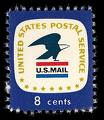
| You never have to pay for information about job vacancies or employment opportunities with the U.S. government or U.S. Postal Service. But some fraudulent promoters are victimizing many Americans by selling information about federal job opportunities. These scam artists advertise in the classified sections of newspapers and offer – for a fee – to help job seekers find and apply for federal jobs. Some fraudulent companies even try to confuse consumers by using names that sound like those of federal agencies, like the “U.S. Agency for Career Advancement” or the “Postal Employment Service.” Fraudsters may lie about the availability of federal job openings in your area. For example, the Postal Service has few vacancies for career positions, and for many of the entry-level jobs, you must take a written examination. Postal Service hiring takes place at the local level through 85 district offices. If someone tells you that postal jobs are available, check with the Postal Service to determine if hiring is taking place and if an exam is required for eligibility. The tests usually are offered every few years in any particular district because of the high volume of applicants. Federal agencies and the U.S. Postal Service never charge application fees or guarantee that an applicant will be hired. If positions require a competitive examination – and many do not – hiring agencies typically offer free sample questions to consumers who sign up for the exam. It’s deceptive for anyone to guarantee you a high score on the postal entrance examinations required for rural carrier associate, clerk, city carrier, mail handler, flat sorter machine operator, mail processor and markup clerk jobs. These exams test your general aptitude, something you can’t necessarily increase by studying. Attending workshops, studying exam techniques and taking practice questions won’t assure you of a top score on the exam – and even a top score doesn’t guarantee that you’ll be hired. You must meet other requirements, including passing a background check and a drug test. Some veterans receive hiring preferences. The Federal Trade Commission (FTC) and the U.S. Office of Personnel Management urge job seekers to avoid falling for these tip-offs to federal and postal job rip-offs: Classified ads or verbal sales pitches that imply an affiliation with the federal government, guarantee high test scores or jobs or state that “no experience is necessary.” Ads that offer information about “hidden” or unadvertised federal jobs. Ads that refer to a toll-free phone number. Often, in these cases, an operator encourages you to buy a “valuable” booklet containing job listings, practice test questions and tips for entrance exams. Toll-free numbers that direct you to other pay-per-call numbers for more information. Under federal law, any solicitations for pay-per-call numbers must contain full disclosures about cost. Also, the solicitation must make clear if there is an affiliation with the federal government. You must have a chance to hang up before you incur any charges. If you have concerns about a company’s advertisement for employment services, contact: Federal Trade Commission: 1-877-FTC-HELP (382-4357) or www.ftc.gov. U.S. Postal Inspection Service: Your local office is listed in the blue (Government) pages of your telephone directory. Your state attorney general or your local Better Business Bureau. Federal job information is available through the U.S. Office of Personnel Management’s USAJOBS at www.usajobs.opm.gov. Information on postal jobs is available at your local post office. In many areas, the Postal Service offers a job information hotline with current hiring announcements. Also, check the Postal Service website at www.usps.gov. The FTC works for the consumer to prevent fraudulent, deceptive, and unfair business practices in the marketplace and to provide information to help consumers spot, stop, and avoid them. To file a complaint or to get free information on consumer issues, visit ftc.gov or call toll-free, 1-877-FTC-HELP (1-877-382-4357); TTY: 1-866-653-4261. The FTC enters consumer complaints into the Consumer Sentinel Network, a secure online database and investigative tool used by hundreds of civil and criminal law enforcement agencies in the U.S. and abroad. |











